
2024 Impacts
Explore our top stories, tools, resources and ideas from 2024.
During 2024, PHI worked alongside our partners to advance public health research, policies, programs and interventions in communities around the globe.
Here are 24 highlights (in no particular order!) from some of PHI’s most impactful work in 2024—a collection of our top stories, tools, resources and ideas that helped to improve health, advance equity and build community power:
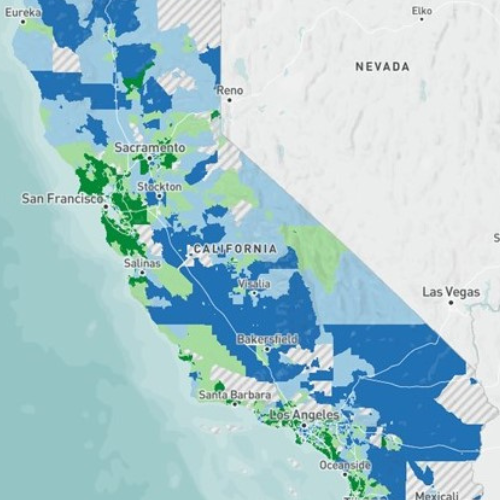
1. Study: Improving Community Conditions Could Save 60,000 Lives Annually
A 2024 study led by the Public Health Institute’s Public Health Alliance of Southern California quantified how community conditions directly impact mortality rates across California. Using the Healthy Places Index (HPI)—a composite measure of 23 factors, including economic standing, education, housing, transportation, environmental quality, and access to health care—researchers found that 24% of all deaths in the state, over 60,000 per year, and 72% of COVID-19 deaths could have been prevented by addressing inequities in community conditions. This research confirmation on the importance of social determinants of health will enable policymakers and funders to pinpoint where to focus resources and efforts to reduce health inequities, make more strategic decisions, and provide all stakeholders with clearer measures to demonstrate the impact of policies and funding.
2. Community Members in California’s San Joaquin Valley Breathing Cleaner Air due to Air Filtration System
The Filtration for Respiratory Exposure to Wildfire Smoke from Swamp Cooler Air (FRESSCA) Mujeres study, a collaboration with PHI’s Tracking California and community partners, reduces wildfire smoke exposure and health risks among agricultural workers and low-income families in California's San Joaquin Valley by designing and field testing an affordable, effective filtration system for swamp coolers, and working with families so they can learn to install them on their own. Families are now noticing a difference—initial readings indicate more than a 50% decrease in particle pollution after installing the air filtration systems.
3. PHI’s Policy Prevention Group Shapes California Policy on Cannabis and Intoxicating Hemp Products
In 2024, advocacy and research from PHI’s Prevention Policy Group informed California Governor Newsom’s proposal for emergency regulations aimed at curbing the manufacture and sale of hemp products containing intoxicating cannabinoids. The Prevention Policy Group research, expert testimony and analysis have shaped policies at the local and state level across the country. Their research examines racial, ethnic, and neighborhood socioeconomic characteristics of Californians subject to specific local cannabis policies, the harms of cannabis, youth and problem use of cannabis, prenatal cannabis use and maternal health outcomes during pregnancy, increasing potency of cannabis and cannabis products and what can be done to address it.

4. PHI’s Dr. Barbara Cohn and DDT Research Featured in ‘Out of Plain Sight’ Documentary
For over six decades, PHI’s Child Health and Development Studies (CHDS) has investigated how health and disease are passed on between generations. Fifty-four years ago, CHDS also led the first study on DDT exposures showing direct evidence that chemical exposures for pregnant women may have lifelong consequences for their daughters’ breast cancer risk. In November of 2024, CHDS director Dr. Barbara Cohn discussed their research on DDT in Out of Plain Sight, a powerful documentary exploring the health and environmental impacts of DDT on humans and ecosystems.
5. PHI Study Shows Nearly 160 Million Americans Harmed by Another’s Substance Use
Researchers from PHI’s Alcohol Research Group released a ground-breaking study in 2024, revealing that millions of Americans have been harmed by a loved one’s drug or alcohol use. The study and authors were highlighted in multiple national media outlets, including HealthDay and U.S. News & World Report.
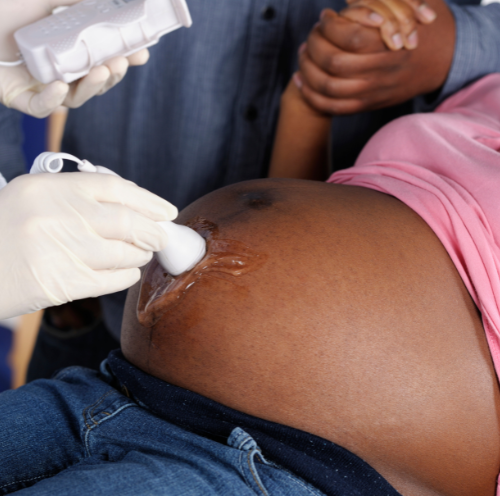
6. California Coalition for Black Birth Justice Strengthens Black Birth Justice Movement
PHI’s California Coalition for Black Birth Justice brought together leaders and advocates to advance birth justice and address racial disparities in maternal health outcomes. Part of this work included providing feedback on the state’s maternal health blueprint in order to help bridge the gap in California’s Black maternal mortality rates.
7. Study: Patients Given Buprenorphine in Emergency Departments More Likely to Have Sustained Treatment for Opioid Use Disorders
PHI’s CA Bridge published findings in 2024 from a critical study that took place at seven California hospital emergency departments (EDs) participating in a statewide program to improve access to buprenorphine, which is used to treat opioid use. The research showed that patients with opioid use disorder were twice as likely to continue receiving medical treatment for addiction if treatment began in the hospital emergency department, and half of those patients (49.7%) remained engaged in treatment at 1 month.
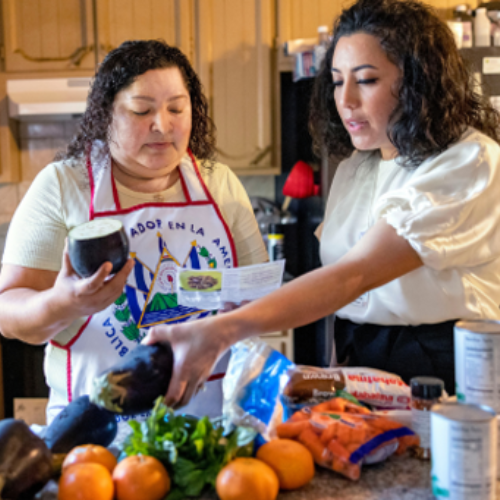
8. Prescription for Produce Program Fighting Diabetes
In Stockton, California, where more than half of the population has pre-diabetes or diabetes, PHI’s Healthy Food Rx offers healthy meal kits to help community members manage diabetes and increase their access and consumption to healthier foods. A study led by PHI’s Center for Wellness and Nutrition and featured in Civil Eats, showed that people with diabetes and in the Healthy Food Rx program, were able to lower A1C levels, better self-manage diabetes, and improve overall diet and food security at 12 months.
9. Together Toward Equity Fellows Reflect on Leadership Development, Community, Health and Equity
In a 2024 blog series, Together Toward Equity Fellows (representing the inaugural cohort of the fellowship program) shared their experiences and insights on leadership development, lessons learned and unique perspectives on how they’re advancing health equity in their local communities. The TTE Fellowship invests in emerging leaders and community-based organizations over the course of a 12-month experience, forging a pathway for fifteen fellows to grow within and with community organizations through coaching, capacity building activities, access to subject matter experts, project-based leadership, and peer networking.
10. PHI’s Rise Up Calls for More Funding for Grassroot Organizations and Leaders Advocate for LGBTQ+ Rights and Protections Around the World
In “Local Leaders Have the Solutions: Why Aren’t We Funding Them?” published in Alliance in April 2024, PHI’s Rise Up shared key recommendations for funders; they call for expanded grantmaking to local organizations and lay out a pathway to ensure the effectiveness, accountability and impact of funder investments. Their recommendations include: providing support beyond just funding; recognizing local leaders as the experts they are; building meaningful, long-term partnerships; and shifting decision-making practices to share power with communities. In 2024, Rise Up also continued to build a powerful network of grassroots leaders working in community-based organizations to advance gender equity and justice in education, health and economic opportunity, including advocating for LGBTQ+ rights and protections in countries around the world.
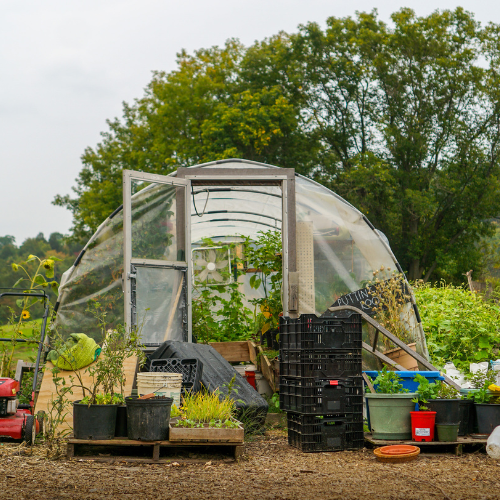
11. Study: Developing Effective Protocols to Protect Farmworkers from Heat Illness in Polytunnels
Building on existing efforts with partners to protect farmworkers from the health impacts of climate change events, PHI’s Achieving Resilient Communities interviewed farmworkers and conducted a study to develop recommendations to help reduce the risk of heat related illness for farmworkers inside polytunnels. Polytunnels, or hoop houses, are used to grow certain crops year-round and are used primarily because these spaces can be significantly warmer than outdoor environments. ARC found that polytunnels are very common in California’s Central Coast region, but there is limited published research on temperatures inside these structures. In a spring 2024 webinar hosted by the Western Center for Agricultural Health, ARC staff and partners discussed the study’s findings and recommendations to protect farmworkers working in polytunnels.
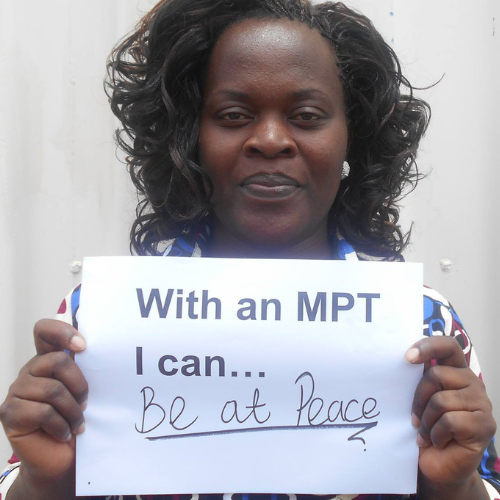
12. CAMI Health Advances National Conversations on Multipurpose Prevention Technologies
In 2024, PHI’s CAMI Health continued to advance the development of multipurpose prevention technologies (MPTs)—products that protect users from HIV, other STIs and pregnancy. CAMI Health organized a national MPT summit featuring 47 speakers, including key-note presentations from NIH, HHS, WHO & White House leadership. Founding director of CAMI Health, Bethany Young Holt, co-edited a special issue of Frontiers in Reproductive Health, a collection of 13 papers from MPT product developers and other stakeholders to stimulate strategic thinking and action needed to expand the MPT field, and was featured in multiple articles that underscore innovative strategies to address priorities and gaps in MPTs, regulatory and funding challenges and more.
13. Innovative Fellowship Program Improves Reproductive Health Access in Emergency Departments
In contraception deserts across the country, many patients rely on hospital emergency departments (ED) for prenatal care, treatment of sexually transmitted infections, or sexual assault. To help meet the needs of communities and increase access to reproductive care, ED providers need adequate resources and support. PHI's Access Bridge trained a cohort of 22 emergency department clinicians (fellows) in 19 hospitals across 13 states, nine of which have abortion bans or restrictions—directly improving access to contraceptive services in EDs and the quality of early pregnancy loss treatment in communities across the country. They also developed easy-to-read algorithms and resources covering miscarriage, contraception and emergency contraception, ectopic pregnancy and medication abortion, along with template decks for physicians to educate their peers.
14. Advancing Racial Equity and Social Justice Through Critical Conversations and Collective Change
Our nation’s long legacy of racism and discrimination has created health inequities that have resulted in increasing illnesses, death and shortened lifespan years for people of color. Many public health advocates and leaders have sounded the alarm and called attention to this public health crisis and are finding innovative ways to address these challenges. PHI’s CA4Health helps advance health equity across California by centering community voices and collaborating with partners to tackle tough issues. In 2024, CA4Health served as the lead organizer for the 20th Anniversary ENACT Advocacy Day where 100+ community partners across California participated in health advocacy activities and visits with elected officials. During this same year, CA4Health launched the 5th year of their 21-Day Racial Equity and Social Justice Challenge, a tool for advocates which creates dedicated time and space to build more effective social justice habits, especially those dealing with issues of race, power, privilege, and leadership. Over 400 individuals registered for the challenge.CA4Health also hosted another year of People.Power.Perspectives., a podcast series highlighting guests advancing health and racial equity.
15. RAMP Supports Statewide Implementation of Medi-Cal Policies for People with Asthma
In 2024, PHI's Regional Asthma Management and Prevention program (RAMP) supported the effective implementation of new Medi-Cal policies in California that now provide coverage for home-based asthma education, environmental trigger assessments and asthma remediation supports. To ensure the effective implementation of the policies, RAMP provided technical assistance to 24 Medi-Cal managed care plans and 30 asthma home visiting organizations. Additionally, RAMP offered capacity-building workshops to 100 Community Health Workers, promotoras and other asthma educators, peer learning discussions and led collective advocacy efforts to improve the asthma policies and broader health equity policies.
16. Study Reveals Hidden Suicide Risk Among Asian American, Native Hawaiian and Pacific Islander Youth
Suicide is the leading cause of death among Asian American, Native Hawaiian, and Pacific Islander (AA+NHPI) adolescents, and research on the mechanisms that elevate suicide risks for different AA+NHPI subgroups is critical. A 2024 study led by Dr. Camillia Lui, scientist from PHI's Alcohol Research Group, examined nine distinct AA+NHPI subgroups and revealed significant differences in suicidal ideation risk among them. Study results will inform priorities for universal strategies that reduce suicide risks for AA+NHPI adolescents as an aggregate population and selective strategies for specific high-risk AA+NHPI adolescent subgroups.
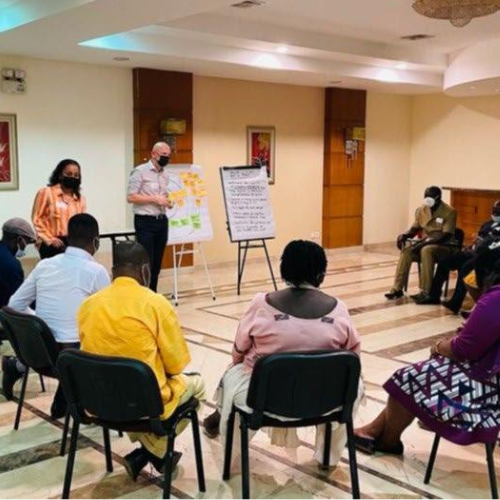
17. STAR Strengthens Capacity of Global Health Professionals and Organizations, Improving Global Health Outcomes
PHI’s Sustaining Technical and Analytic Resources (STAR) strengthened the capacity of global health professionals and laid the groundwork for sustained impact in the global health sector. 2024 represented the last year of STAR and throughout the life of the project, STAR recruited and supported over 300 global health professionals who contributed to technical leadership and expertise in many areas, whose work made an impact in 41 countries. STAR participants contributed to developing emergency room protocols in Nepal, providing technical assistance in multiple countries for COVID patient management, promoting community-based models to increase adherence to antiretroviral treatment for people living with HIV in Nigeria, among other efforts.
18. Supporting Community Resilience through a Trauma-Informed Approach
PHI’s Cypress Resilience project trained 1,372 individuals in 2024 in adult, youth and Spanish mental health first aid across the state of California to support communities in building mental health response skills and strengthen the confidence of people working in communities impacted by substance use. Based on survey responses participants connected over 1,400 individuals to mental health resources and services after their trainings. This same year, and in partnership with the California Department of Public Health, the Office of Refugee Health and PHI's Sehat initiative, Cypress led a grant program for community-based organizations that provided trauma responsive, culturally and linguistically rooted peer counseling and mental health services to refugee populations in California.
19. ‘Together is Where We Save Lives’ Messaging Guide Offers Advocates Tools to Shift Narratives on Gun Violence
The U.S. Surgeon General declared injury and death from firearms a public health crisis in 2024, highlighting the critical and ongoing need for solutions to the crisis grounded in principles of community action and systems change. No matter who we are or where we live, we all want to reduce the public health problem of injury and death from firearms — and everyone can play a role in keeping people safe. But the promise of prevention is often missing from narratives about gun violence. To help advocates shift the narrative, PHI’s Berkeley Media Studies Group partnered with the Hope and Heal Fund to create a new resource: ‘Together is where we save lives’: A messaging guide for California advocates working to reduce injuries and fatalities from firearms.
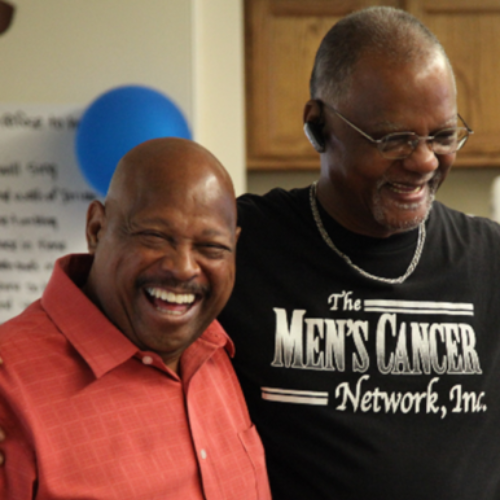
20. National RESPOND Study Takes Closer Look at Health Disparities in Prostate Cancer for African American Men
African American men are at higher risk of developing and dying from prostate cancer in their lifetime, compared to men of any other race. The relative contributions of social and genetic factors to this inequity remains unclear. The RESPOND Study (Research on Prostate Cancer in Men of African Ancestry: Defining the Roles of Genetics, Tumor Markers and Social Stress) is one of the largest studies ever to look at lifetime and underlying stress factors, such as systemic racism, genetic predisposition, access to healthcare and tumor characteristics that put African American men at higher risk for developing and dying from prostate cancer.
21. California Overdose Prevention Network Plays Critical Role in Addressing Substance Use and Overdose Crisis
In 2024, PHI’s California Overdose Prevention Network received $1.55M in funding from the California Department of Health Care Services to serve as the financial administrator for 19 coalitions working in communities to prevent new substance use addictions, manage pain safely for patients, treat addiction and stop overdose deaths. Collectively, these coalitions distributed 110k+ doses of Naloxone—a lifesaving overdose reversal drug—and provided prevention education to 70k community members.
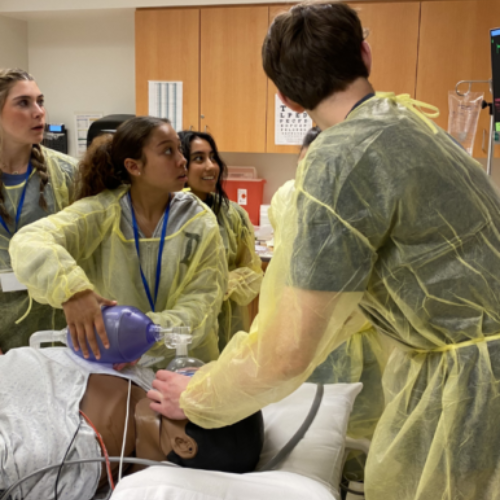
22. Preparing the Next Generation of Healthcare Professionals
PHI’s FACES for the Future addresses the lack of diversity in health professions, which directly contributes to health disparities in communities, by providing youth from low-income communities of color the training, tools and skills necessary to become future healthcare professionals. FACES Public Health Youth Advocates are trained as peer educators in their communities and learn basic public health practices including analyzing population health and identifying health disparities in their own neighborhoods. They learn how to talk to peers, family, and community members about public health issues and how to conduct challenging conversations and motivational interviews. Youth advocates also receive training in areas such as: Narcan/Opioid Overdose Intervention, Stop the Bleed, CPR and Mental Health First Aid. In 2024, over 400 FACES youth advocates improved their knowledge and skills and received certifications in these trainings.
23. GenNext Fellows Learn Critical Skills as New Global Humanitarian Leaders
PHI’s Generation Next Fellowship prepared the next generation of diverse leaders in the humanitarian sector by creating career pathways and supports for seniors and recent graduates of Historically Black Colleges and Universities, Hispanic-Serving Institutions, Asian American and Pacific Islander Institutions and Tribal Colleges and Universities. 2024 fellows worked closely with a global humanitarian host organization where they learn, grow and strengthen their skills as rising global humanitarian leaders. Fellows engaged in multiple hands-on and transformative experiences across the globe, in places like: South Africa, Guatemala, Uganda, Kenya and more.
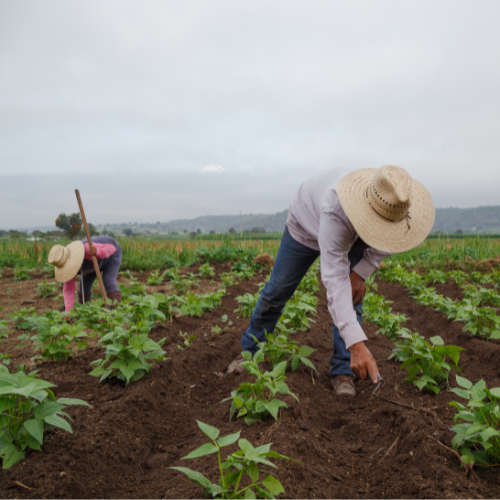
24. Advocating for a Healthy, Just and Resilient Food System
From 2023 to early 2024, PHI's Roots of Change and partners in the Food & Farming Resilience Coalition advocated for a $10 billion climate bond to be placed on California’s November 2024 ballot. The bond—Proposition 4—passed by a wide margin and includes $1 billion for investments in a healthy, just and resilient food system. The depth and breadth of the food system investments in Proposition 4 are the direct result of the coalition’s efforts and the tireless advocacy of the bond’s legislative champions. The $1 billion will help to build local and healthy food systems infrastructure, new farmworker housing projects and weatherization of existing farmworker homes. It will also help fund projects to make communities safer and more resilient to wildfires, floods, droughts and extreme heat—supporting both rural and urban communities.
Work With Us
You change the world. We do the rest. Explore fiscal sponsorship at PHI.
Support Us
Together, we can accelerate our response to public health’s most critical issues.
Find Employment
Begin your career at the Public Health Institute.
